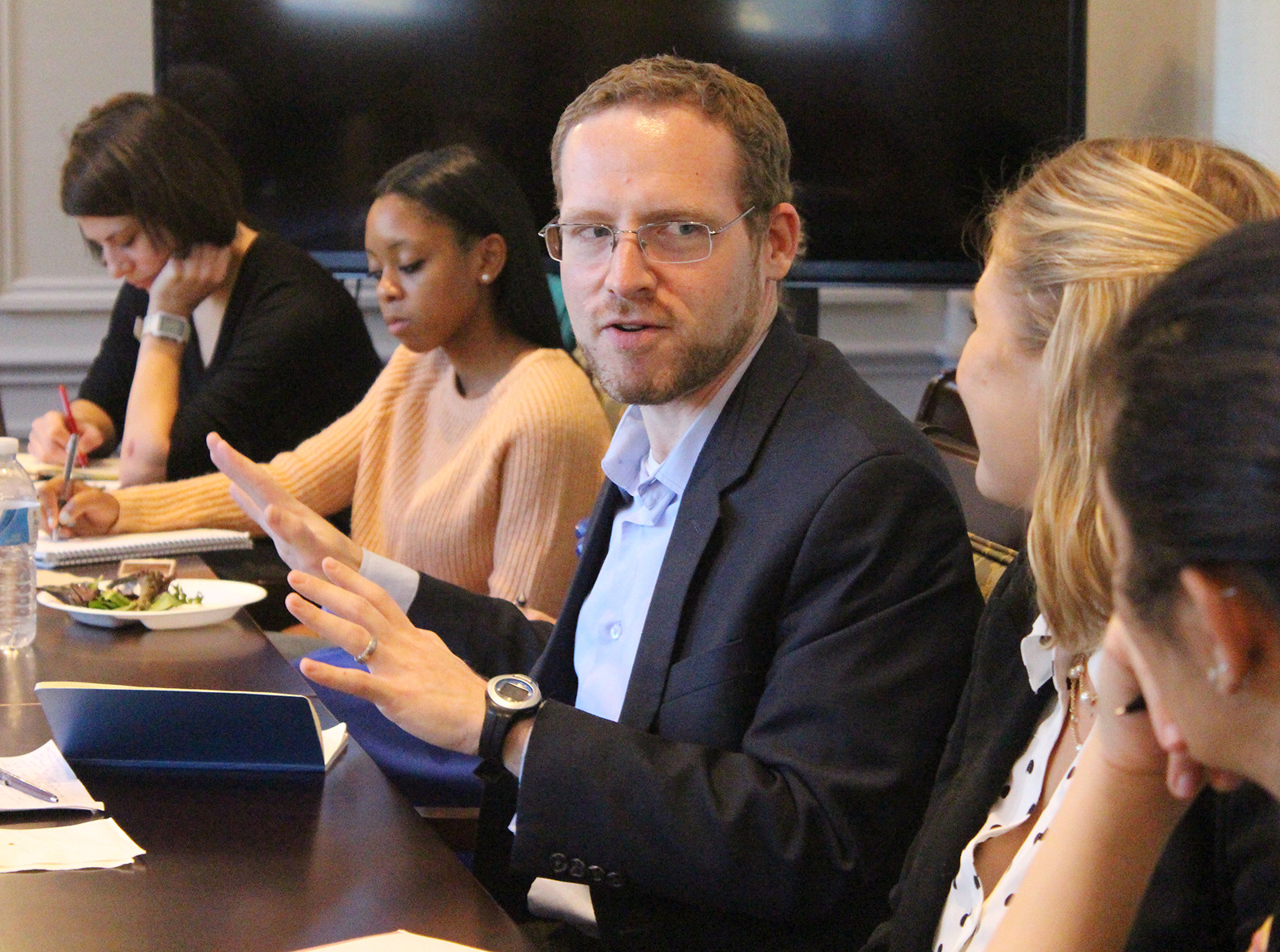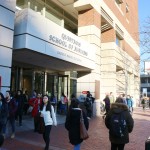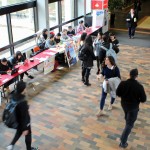
Boston University’s Frederick S. Pardee School of Global Studies hosted a conversation with Joseph Livingston, the program officer of the U.S. State Department’s Bureau of Population, Refugees and Migration, to talk about the ongoing Syrian refugee crisis Thursday.
Livingston spoke of the State Department’s efforts to address the international crisis, saying the department had provided $4.5 billion in assistance efforts since the beginning of the crisis primarily to Turkey, Lebanon and Jordan in regards to the countries’ lack of food, shelter and job availability.
Approximately 15 people attended the talk.
Aside from financial assistance from the government, Livingston said, increasing awareness on the issue was another crucial effort. He emphasized how wider conversations would improve the chance of the efforts’ success.
“Drawing awareness to the crisis in the region,” he said during the talk, “And using the energy of what has come out of this mass exodus, this continuing exodus in Europe, to remind folks that there is so much that needs help in the region is something that we are very supportive of.”
Livingston added that a focal issue to address was economic and entrepreneurial opportunities refugees have once they reside in their country of choice. Governments assuring and striving for job availability would be the primary long-term solution, he said.
“We see some survey evidence to suggest that jobs are the primary thing that [refugees] want,” Livingston said.
Noora Lori, a BU professor of international relations, said she agrees with Livingston and feels that students can produce creative solutions by maximizing the impact of social media applications and the Internet.
“There are ways that we can help [Livingston] as much as he is useful for us,” Lori said.
Lori, an organizer of the talk, said that it went better than expected, since Livingston highlighted regions that are “vulnerable” and in need of further humanitarian aid.
“He did a really good job of showing that now people are actually awake about this,” she said. “Now it’s how we coordinate our efforts so that we are not duplicating efforts and we’re not missing some critical areas.”
Several attendees said Livingston gave thought-provoking insights on what the government has done and will do by working together with fellow Americans to resolve this international humanitarian crisis.
Kathryn Bergamini, a second-year student in the Graduate School of Arts and Sciences, said the event informed her more of the state department’s efforts.
“It was interesting to hear his perspective from the State Department and that they are actually getting involved,” Bergamini said. “A lot of times the government can get a bad [reputation] for not doing enough or not doing the right thing.”
Thea Kirsch, a senior from Germany in the College of Arts and Sciences, said that attending the conversation made her aware of how important U.S. involvement is worldwide.
“In general I think the event fulfilled my expectations about getting to know more about the U.S. political point of view of the issue,” Kirsch said. “The U.S. resettlement programs are steps that Europe could learn from and could be extended to Europe.”
Ashley Mixon, a junior in CAS, said she looks forward to future efforts and is interested in becoming a part of the solution to the crisis.
“I definitely feel like after having this conversation there is a lot we can do,” Mixon said. “There is a way for everyone to contribute, and I feel like the process is simple to join. The people wanting to help refugees at this point is definitely there.”














